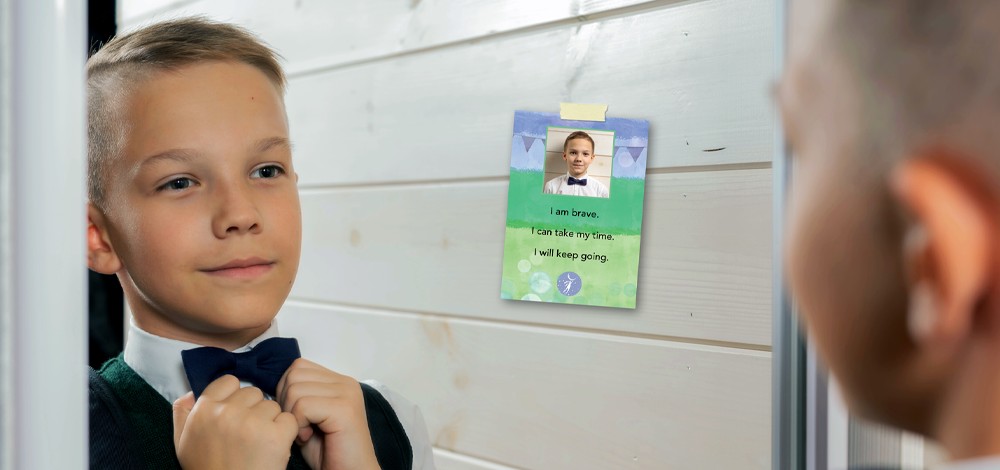Why We Use Affirmations with Our Kids (and Ourselves!)
Why We Use Affirmations with Our Kids (and Ourselves!)
Years ago, right after I had my son, I was hit with postpartum depression. I tried everything, from therapy to supplements to white-knuckling through the day, but I couldn’t fully see a way forward.
Then I stumbled across Melody Beattie’s book Make Miracles in 40 Days. I was awash in so many strange, sticky feelings that I thought, Why not? and dove into the process she shares in her book.
To sum it up in one line: the book centers around a “Miracle Exercise” where you write daily gratitude, not just for the good things, but for the hard things too. Every day, I made a list. And right alongside that, I started writing and reading affirmations, statements about who I was becoming. Things like:
- I am kind.
- I am strong.
- Even if I don’t know how, I can figure it out.
It sounds so simple. But it changed my life.
Over 11 years later, I still write my gratitude list and read my affirmations daily. And I can truly say: my life has grown fruit from those seeds.
But Why Do Affirmations Work?
I didn’t grow up with affirmations taped to my mirror or tucked into my lunchbox. But now, as a mom, I see what a difference a few powerful words can make, especially when little ears are listening.
Affirmations aren’t just feel-good fluff. They literally help rewire the brain. Yep, science says so! Repeating kind, true things about ourselves strengthens neural pathways that reinforce those beliefs over time (Shad et al., 2010). So when a child says, “I am brave,” or “I can do hard things,” they’re not pretending, they’re building mental muscle.
And when we say affirmations with them, it’s even more powerful. Our brains are wired for selftalk, and when that self-talk becomes kind, steady, and true, it turns into the background music of our daily thoughts.
That practice lowers stress, increases resilience, and helps us all show up calmer, kinder, and more confident, in motherhood, in childhood, and in life (Creswell et al., 2013).
Affirmations Aren’t Little, They’re Brain-Changing Magic
Whether it’s taped to a bathroom mirror, packed in a lunchbox, tucked in a backpack, or whispered at bedtime… those little affirmations aren’t so little. They’re tiny love notes that echo long after we speak them.
And that old saying “fake it till you make it”? It’s not nonsense, it’s neuroscience. Sometimes, saying we can do it is the very first step to actually doing it.
Want to Try This at Home?
We’ve created custom downloadable affirmation cards for kids (and adults too!), with beautiful backdrops and the option to add your child’s photo or your own.
You can:
- Print them and tape them to their mirror
- Pop one in a lunchbox
- Tuck one in your own wallet
- Create a daily routine to speak them aloud together
These cards are more than just cute, they’re tools to help build a stronger, more loving inner voice.
Citations:
- Shad, S., et al. (2010). Neuroplasticity and Self-Affirmation: Understanding the Brain’s Ability to Reframe Belief Systems.
- Creswell, J. D., et al. (2013). Self-affirmation improves problem-solving under stress. PLOS ONE, 8(5), e62593.
Talk soon,
Lucy





